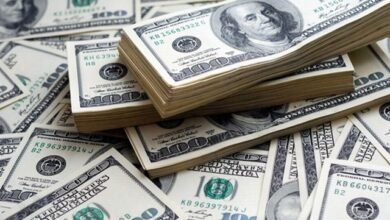The Nigerian Naira goes from the worst-performing currency in the world to the best

According to an economist at Goldman Sachs as reported by the American news agency, Bloomberg, the Nigerian currency could continue on its recovery trajectory, as long as the policymakers stay on track.
The economist noted that the Naira experienced a 12% rally in April, following the 14% rally it experienced in March. Last month it was reported that the currency dropped to N1,382 against the US dollar at the official market, shedding N500 against the dollar from its all-time low during the year.
Currently, the currency’s value is N1,230 per dollar at its most recent official close versus an N1,627/US$ record low on March 8. The recovery of the Naira is due to capital inflows and interest rate increases.
Goldman Sachs still places high hopes on the currency, following its prediction that the Naira would rebound to N1200/US$ when the currency was at its all-time low.
Now the Investment Bank has forecasted that the currency would drop to at least N1000/US$ or maybe less as the Central Bank of the country continues to impose positive fiscal policies.
The policies highlighted by the investment bank include 600 basis points of cumulative interest rate hikes at policy meetings in February and March, as well as additional initiatives to alleviate the local dollar scarcity, which fueled volatility and encouraged enterprises to use the parallel market.
Local dollar liquidity has also been increased as a result of the clearing of an estimated $7 billion in outstanding dollar purchase agreements.
“This probably can run further; we would see an extension of the move to 1,000 and maybe even sub-1,000,” Goldman’s Andrew Matheny said in an interview. “Six weeks have gone by and they’re continuing to hold the line, so that’s encouraging,” he added.
Last year, the president of the country implemented a couple of bold economic reforms, two of which saw the deterioration of the economy since then.
The first is the removal of fuel subsidies which directly impacted inflation across the country and the second is the floating of the currency.
Source link





